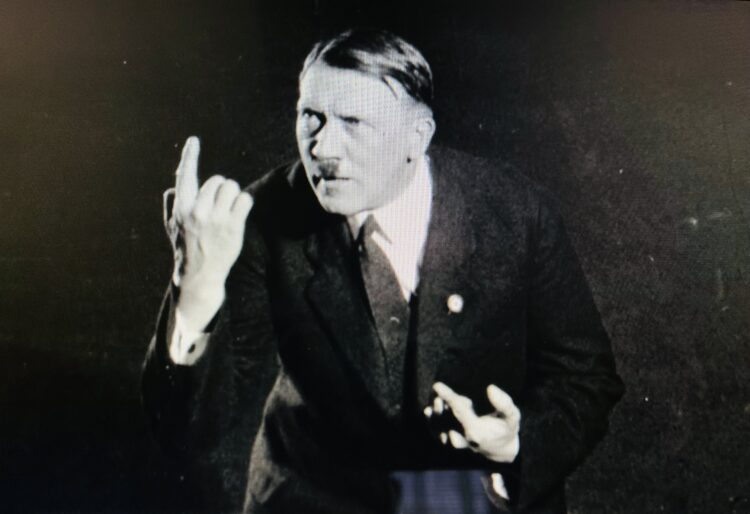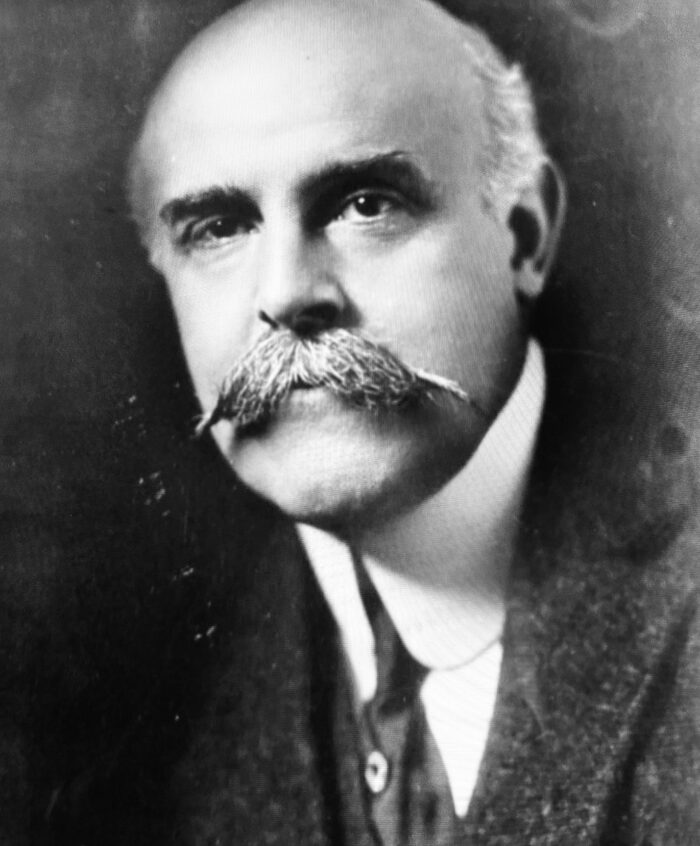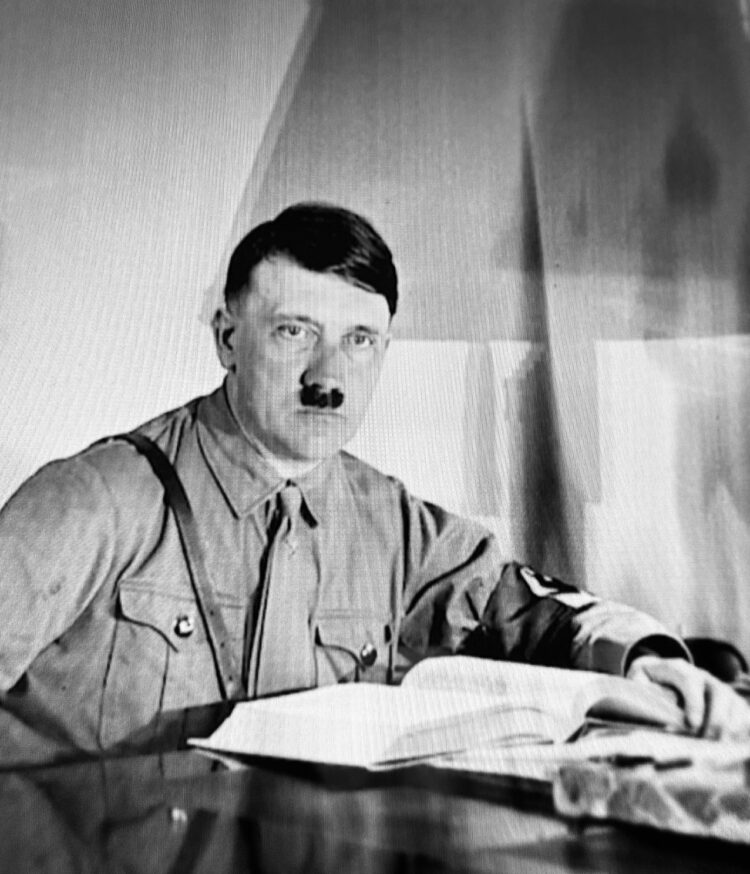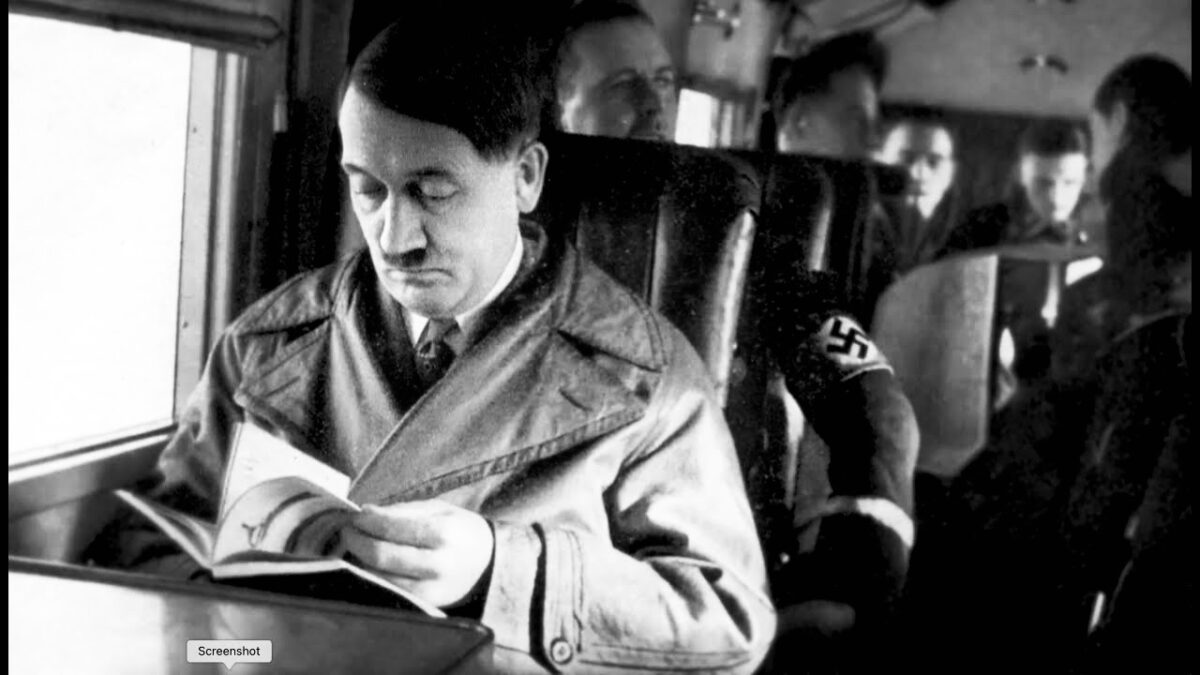Adolf Hitler, though a school dropout, was an avid reader. He maintained libraries in Berlin, Munich and the Berghof, his rustic retreat in the German Alps. When he committed suicide in his bunker in Berlin in the spring of 1945, he owned no less than 16,000 books.
Many of them vanished after his death, but 1,300 are in the possession of the U.S. Library of Congress, while another batch of 80 gather dust at Brown University in Providence, Rhode Island.

Hitler’s reading habits are the theme of The Books He Didn’t Burn, a fascinating documentary by Jascha Hannover and Claus Bredenbrock scheduled to be screened on June 7 at this year’s Toronto Jewish Film Festival, which runs from May 30 until June 9.
The title is an allusion to the horrific book burnings that took place in 90 cities and towns in Germany in May 1933, four months after Hitler’s appointment as chancellor. These barbaric events were planned by German student organizations, but were encouraged and supported by the Nazi regime. Books by Jewish authors were consigned to bonfires, as were books by writers whom the Nazis considered ideologically beyond the pale.
As these books were devoured by flames, Propaganda Minister Joseph Goebbels proclaimed that “the era of exaggerated Jewish intellectualism has come to an end.”
This 90-minute film, an amalgam of interviews, vintage photographs and file footage, conveys the thoughtful point that reading is not necessarily an activity that makes a person intelligent and humane. As a rabbi in Paris aptly observes, books can also fill you with hatred, while reading can be a prelude to violence and mass murder. Obviously, Hitler falls into the second category.
As a young man, Hitler often visited the Austrian National Library in Vienna. And in Munich, after World War I, he began creating his own private library. Dietrich Eckart, his antisemitic mentor, introduced the poorly educated German army war veteran to reactionary authors such as Houston Stewart Chamberlain and Arthur de Gobineau, whose racist ideas influenced the Nazi movement.
While in prison in 1924, Hitler wrote My Struggle, his two-volume set of turgid memoirs and reflections, and read books he had received from visitors. Among them were a Berlin guidebook by a Jewish author and Fire and Blood, a personal account of trench warfare by a German soldier who had served on the Western front.

During his rise to prominence, Hitler’s single biggest tax write-off was for books he had purchased.
Julius Lehmann, a German publisher and a supporter of the Nazi Party, gifted Hitler with books by Eugen Fischer, a racist affiliated with the prestigious Kaiser Wilhelm Institute, and by Madison Grant, an American white supremacist and the author of the best-seller, The Passing of the Great Race (1918).

After assuming power, Hitler was showered with books by admirers. Hitler’s tastes were eclectic, but he was drawn to books about German and European history, the occult and spirituality.

In 1942, the Swedish explorer Sven Hedin sent him his newest book, which posited the debatable argument that Hitler had seriously attempted to forge a rapprochement with the United States but had been spurned by President Franklin Roosevelt. Hitler, of course, was delighted by its thesis.
The film implies that Hitler read only works of non-fiction. Nowhere is it suggested that he had time for novels, short stories or poetry. It would appear that Hitler was primarily interested in books that advanced his beliefs, prejudices and assumptions.
